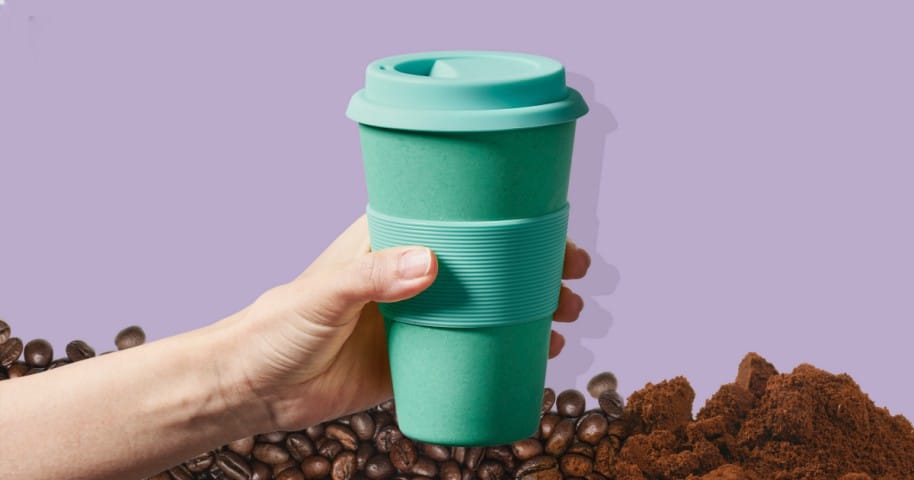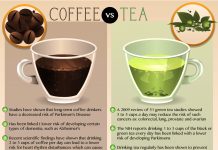Are you a coffee lover who can’t start their day without a steaming cup of java?
Well, here’s some surprising news for you. According to recent studies, it might be best to hold off on that morning brew.
While we’ve always been told that coffee jumpstarts our day and boosts our energy levels, experts now suggest that consuming coffee first thing in the morning can be counterproductive to our overall health and well-being.
In this article, we’ll explore why you might want to consider reevaluating your caffeine routine and find the best time to enjoy your go-to beverage.
So, grab a cup of tea and rethink your morning routine!
Impact on cortisol levels
Cortisol and its role
Cortisol is a hormone that plays a crucial role in regulating your body’s response to stress. It is often called the “stress hormone” because its production increases during physical and psychological stress.
Cortisol helps to mobilize energy, increase blood pressure, and regulate immune responses. While cortisol is necessary for the body’s natural stress response, excessive or prolonged elevation of cortisol levels can negatively affect your health.
Natural cortisol levels
Under normal circumstances, cortisol levels follow a natural rhythm throughout the day. Cortisol levels are highest in the morning upon waking up and gradually decrease throughout the day, reaching their lowest point in the evening.
This natural variation in cortisol levels is an integral part of your sleep-wake cycle and helps to regulate various bodily functions.
Artificial spike in cortisol levels
Drinking coffee in the morning can produce an artificial spike in cortisol levels. Caffeine, the primary active compound in coffee, stimulates the release of cortisol from the adrenal glands. While this can provide a temporary energy boost, frequent morning coffee consumption can disrupt the natural cortisol production rhythm and lead to imbalances in the body’s stress response system.
Disrupting the natural wake-up process
Adenosine accumulation
When you wake up in the morning, your body produces adenosine, a compound that helps to promote sleepiness and relaxation. Adenosine levels gradually increase as you remain awake, causing you to feel more tired as the day progresses.
However, consuming coffee in the morning blocks the effects of adenosine, preventing you from experiencing natural wakefulness and potentially leading to dependency on caffeine to stay alert.
Effect on melatonin production
Melatonin is a hormone that helps regulate your sleep-wake cycle. High levels of cortisol, caused by the consumption of coffee, can inhibit the production of melatonin. This can make it more difficult to fall asleep at night, further disrupting your sleep patterns.
Impact on circadian rhythm
Your circadian rhythm is a natural internal clock that regulates your sleep-wake cycle.
Consuming coffee in the morning can interfere with this rhythm by delaying your body’s natural awakening process. This disruption can lead to difficulties in falling asleep at night and may result in lower sleep quality.
Increased tolerance and dependency
Building up tolerance
Regular consumption of coffee can lead to increased tolerance to its effects. Over time, your body may require higher doses of caffeine to achieve the same level of alertness or energy boost.
This tolerance can result in a cycle of escalating coffee consumption, potentially leading to dependency on caffeine to function normally.
Risk of dependency
Dependency on caffeine can negatively affect your physical and mental well-being. When you rely on coffee to wake up and stay alert, you may experience withdrawal symptoms when you don’t consume it, such as headaches, irritability, and fatigue.
This dependency can also lead to a vicious cycle of needing more coffee to combat withdrawal symptoms, further exacerbating the adverse effects on your health.
Withdrawal symptoms
Abruptly discontinuing caffeine intake can lead to withdrawal symptoms such as headaches, fatigue, mood swings, and difficulty concentrating.
These symptoms can be debilitating and may require a gradual reduction in caffeine consumption to alleviate them. Thus, consuming coffee first thing in the morning can potentially lead to a cycle of dependence and withdrawal.
Anxiety and jitters
Activation of fight-or-flight response
Coffee consumption can activate the body’s fight-or-flight response due to the release of stress hormones like cortisol. This activation can result in increased heart rate, heightened alertness, and a surge of adrenaline. While this response may be desirable in certain situations, frequent activation of the fight-or-flight response can contribute to feelings of anxiety and nervousness.
Worsening of anxiety symptoms
If you already experience anxiety or have an anxiety disorder, consuming coffee in the morning can worsen your symptoms. The stimulation caused by caffeine can lead to an increase in racing thoughts, restlessness, and feelings of unease. Be mindful of your sensitivity to caffeine and its potential impact on your mental well-being.
Restlessness and jitters
Caffeine is a central nervous system stimulant that can cause restlessness and jitters, especially when consumed in large quantities or on an empty stomach.
These physical symptoms can be uncomfortable and interfere with your ability to focus or perform daily tasks. Limiting or avoiding coffee consumption in the morning can help reduce the likelihood of experiencing these effects.
Dehydration and nutrient absorption
The diuretic effect of caffeine
Coffee is a diuretic, meaning it increases urination and can contribute to bodily fluid loss. This diuretic effect is due to caffeine, which stimulates the kidneys to produce more urine.
Consequently, consuming coffee in the morning can lead to increased fluid loss and potential dehydration if adequate water intake is not maintained.
Decreased water intake
When you prioritize coffee consumption in the morning, you may inadvertently reduce your water intake or other hydrating beverages. This can further contribute to dehydration and imbalances in your body’s fluid levels. It is essential to remember that hydration is crucial for optimal bodily functions and overall health.
Interference with nutrient absorption
Excessive coffee consumption, especially on an empty stomach, can interfere with absorbing essential nutrients from the foods you consume. Coffee contains tannins, which can bind to certain nutrients like iron and reduce their absorption in the digestive tract. This interference can potentially lead to nutrient deficiencies and compromise your overall health.
Sleep disruption
Effect on sleep quality
Consuming coffee in the morning can negatively affect the quality of your sleep. The stimulating effects of caffeine can make it harder for you to fall asleep and may lead to lighter, more fragmented sleep throughout the night.
Sleep deprivation or poor sleep quality can significantly affect your physical and mental well-being, including reduced cognitive function, decreased immune response, and increased risk of chronic health conditions.
Delayed onset of sleep
Caffeine has a half-life of about 3-5 hours, meaning it takes half of the caffeine to be eliminated from your body. This prolonged presence of caffeine can delay the onset of sleep, making it harder for you to fall asleep at night. If you have a regular bedtime routine, consuming coffee in the morning may disrupt the timing of your natural sleep-wake cycle.
Fragmented sleep patterns
Consuming coffee in the morning can contribute to fragmented sleep patterns, characterized by frequent awakenings throughout the night.
This disruption can prevent you from experiencing deep, restorative sleep and may leave you dizzy and unrefreshed upon waking. It is essential to prioritize adequate sleep hygiene and avoid substances that can interfere with sleep, such as caffeine.
Potential digestive issues
Stimulation of gastric acid secretion
Coffee consumption in the morning can stimulate gastric acid production in the stomach. This increased acid secretion can cause acid reflux, heartburn, and indigestion.
Individuals with pre-existing gastrointestinal conditions, such as gastroesophageal reflux disease (GERD) or gastritis, may be particularly susceptible to these adverse effects.
Increased risk of acid reflux
Acid reflux occurs when stomach acid flows back into the esophagus, causing a burning sensation in the chest (heartburn) and potentially damaging the lining of the esophagus. Coffee consumption, especially when combined with a fatty meal or lying down shortly afterward, can increase the risk of acid reflux episodes and exacerbate symptoms in individuals prone to this condition.
Aggravation of irritable bowel syndrome (IBS)
For individuals with irritable bowel syndrome (IBS), coffee can trigger digestive symptoms such as abdominal pain, bloating, and changes in bowel habits. The caffeine content in coffee can stimulate intestinal contractions, increasing sensitivity and discomfort in individuals with IBS. Minimizing or avoiding coffee in the morning can help reduce the risk of aggravating IBS symptoms.
Dependency on caffeine for energy
Masking underlying fatigue
One of the potential drawbacks of consuming coffee in the morning is that it can mask underlying fatigue. While the caffeine in coffee may provide a temporary energy boost, it does not address the root cause of fatigue. Relying solely on caffeine to combat fatigue can prevent you from adequately addressing lifestyle factors, such as sleep deprivation or lack of physical activity, that may contribute to your overall energy levels.
Adverse effects on natural energy production
Consuming coffee in the morning can interfere with your body’s natural energy production processes. Caffeine acts as a stimulant, increasing your heart rate and activating your nervous system. While this can provide short-term energy, it can disrupt the body’s ability to regulate energy levels naturally. It may lead to a dependence on external sources, such as caffeine, for sustained alertness.
The cycle of caffeine dependence
Regularly consuming coffee in the morning can lead to a cycle of caffeine dependence. The temporary energy boost provided by caffeine can create a perceived need for coffee to function optimally.
However, dependence on caffeine can have diminishing returns, requiring higher doses to achieve the desired effects and potentially leading to adverse health consequences. Breaking this cycle can promote a more sustainable and balanced approach to maintaining energy levels throughout the day.
Negative impact on hydration levels
Diuretic properties of coffee
Coffee, due to its caffeine content, has diuretic properties that can promote increased urination and fluid loss.
This diuretic effect can contribute to dehydration if adequate hydration practices are not followed.
While coffee can contribute to overall fluid intake, the diuretic effects may offset the hydrating benefits, mainly if you rely solely on coffee as the primary source of fluids.
Inadequate compensation for fluid loss
When you consume coffee in the morning, it is essential to compensate for the fluid loss caused by the diuretic effect of caffeine.
However, individuals may not adequately compensate by consuming enough water or other hydrating beverages throughout the day. This can lead to chronic dehydration, negatively impacting various bodily functions, including digestion, cognitive function, and overall health.
Cumulative effects on hydration
Regularly consuming coffee in the morning, especially without proper hydration practices, can have cumulative effects on your overall hydration levels.
These effects can become more pronounced over time and may contribute to long-term dehydration-related health issues. It is crucial to prioritize consistent hydration and consider alternatives to coffee as the primary source of fluids in the morning.
Long-term effects on health
Effects on cardiovascular health
Excessive coffee consumption, especially in the morning, has been associated with increased heart rate, elevated blood pressure, and irregular heart rhythms.
Prolonged exposure to these effects can pose risks to cardiovascular health, including an increased risk of heart disease, hypertension, and other cardiovascular conditions. It is essential to be mindful of your sensitivity to coffee and consider moderation in its consumption.
Risk of adrenal fatigue
Adrenal fatigue refers to a condition where the adrenal glands, responsible for producing cortisol and other hormones, become overworked and unable to meet the body’s demands.
Consuming coffee in the morning can contribute to this fatigue by constantly stimulating the adrenal glands and disrupting the natural cortisol production rhythm. Adrenal fatigue can have many symptoms, including fatigue, reduced immunity, and overall feelings of burnout.
Implications for hormonal balance
The disruption of cortisol levels caused by drinking coffee in the morning can have broader implications for hormonal balance in the body. Cortisol is vital in regulating other hormones, such as insulin, thyroid, and reproductive hormones.
Imbalances in these hormones can have far-reaching effects on various bodily functions, including metabolism, fertility, and mood regulation. Prioritizing a balanced approach to cortisol regulation, including avoiding excessive coffee consumption, can help maintain optimal hormonal balance.
In conclusion, while a cup of coffee in the morning may be a beloved ritual for many, it is essential to consider the potential impacts on your health.
Drinking coffee first thing in the morning can disrupt cortisol levels, impair the natural wake-up process, increase tolerance and dependency, contribute to anxiety and jitters, affect hydration levels, disrupt sleep patterns, potentially cause digestive issues, lead to dependency for energy, impact hydration, and have long-term effects on health.
It is essential to be mindful of your individual needs and sensitivities and consider alternatives or moderation to prioritize your overall well-being.










































